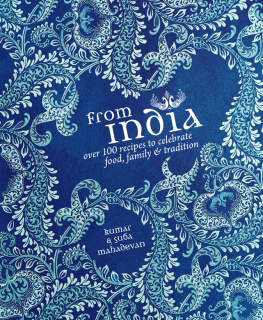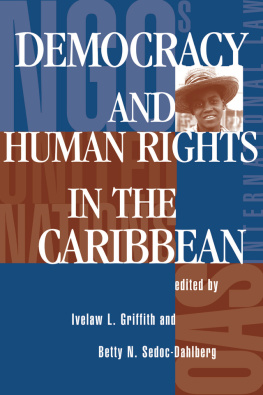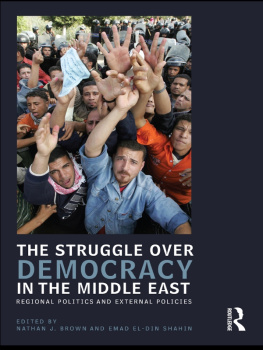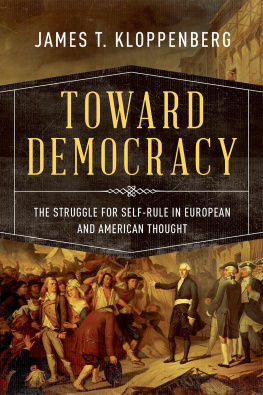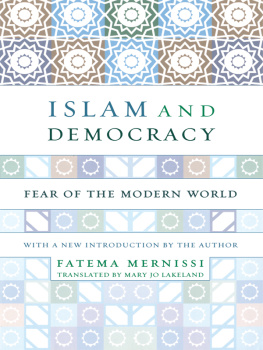Contents
Guide
Print Page Numbers

First published in French as Les ennemis intimes de la dmocratie
Editions Robert Laffont/Versilio, 2012
This English edition Polity Press, 2014
Polity Press
65 Bridge Street
Cambridge CB2 1UR, UK
Polity Press
350 Main Street
Malden, MA 02148, USA
All rights reserved. Except for the quotation of short passages for the purpose of criticism and review, no part of this publication may be reproduced, stored in a retrieval system, or transmitted, in any form or by any means, electronic, mechanical, photocopying, recording or otherwise, without the prior permission of the publisher.
ISBN-13: 978-0-7456-8578-6
A catalogue record for this book is available from the British Library.
Library of Congress Cataloging-in-Publication Data
Todorov, Tzvetan, 1939
[Ennemis intimes de la dmocratie. English]
The inner enemies of democracy / Tzvetan Todorov. pages cm
ISBN 978-0-7456-8574-8 (hardback) -- ISBN 0-7456-8574-9 (hardback)
1. Democracy. 2. World politics. I. Title.
JC423.T6213 2014
321.8--dc23
2014012440
The publisher has used its best endeavours to ensure that the URLs for external websites referred to in this book are correct and active at the time of going to press. However, the publisher has no responsibility for the websites and can make no guarantee that a site will remain live or that the content is or will remain appropriate.
Every effort has been made to trace all copyright holders, but if any have been inadvertently overlooked the publisher will be pleased to include any necessary credits in any subsequent reprint or edition.
For further information on Polity, visit our website: politybooks.com
Democracy and its Discontents
The paradoxes of freedom
The question of freedom entered my life early on. Until the age of twenty-four, I lived in a totalitarian country, Communist Bulgaria. The main thing everyone around me complained about was the shortages the difficulty of getting hold of not just basic commodities but those little extras that brighten up life, such as food, clothing, toiletries and furnishings. But the lack of freedom still came next on the list of gripes. The countrys leaders exercised control over countless activities through a whole range of different organizations, through occupation, neighbourhood and age group, as well as through the party apparatus, the police force and the political police known as State Security. Our whole life was monitored, and the slightest deviation from the party line risked being denounced. This obviously included all the areas that could be related to the political principles laid down, from literature and the human sciences to public institutions. But it also included more neutral aspects of life, aspects that it would be difficult to imagine, in other circumstances, as having any ideological meaning at all: the choice of a place of residence or of a profession, and even something as seemingly frivolous as your preference for a particular garment. Wearing a miniskirt, or trousers that were too tight (or too loose), was severely punished. It could lead you, first, to the police station where you were given a couple of slaps in the face; for a subsequent offence, you could end up in a re-education camp, and you were never sure you would get out alive.
We suffered from this lack of freedom to a degree that depended on how much we needed it. I was a curious young man, living in the capital, studying literature, preparing myself for an intellectual profession, teaching or writing. The word freedom was, of course, legitimate and even highly valued, but like the other ingredients of official propaganda, it was used to hide or to fill in for an absence: for lack of the real thing, we had the word. Those who wanted to participate in public life without becoming slaves of dogma were asked to practise a variant of the forgotten art of writing of which Leo Strauss speaks, the language of Aesop: do not say a thing but suggest it a subtle game in which you, too, could end up being the loser. For my part, I was sensitive to the lack of freedom of expression, a lack which eroded the very freedom of thought on which it was based. I had witnessed in silence the public humiliation of several people whose behaviour had been found to deviate too much from the model imposed, and I hoped to spare myself such sessions of critique without betraying my convictions.
During the last year I spent in Bulgaria before leaving, fresh out of college, I took my first tentative steps in public life by writing for newspapers. I was especially proud when I felt I had managed to get round the all- pervasive censorship. On the occasion of a national holiday, they had asked me to prepare a double-page spread in a newspaper. I chose to mention some dead heroes of the anti-fascist resistance who had fought against tyranny: these were characters of undeniable virtue. My stratagem consisted of talking about the present under cover of evoking the past, so as to remind everyone that freedom has to be fought for. This was indeed the title I had chosen for these pages: For freedom! Many people, I remember, noticed this publication and, understanding the allusion to the present, praised me for my ingenuity Such were the paltry victories which a young Bulgarian author could boast of, in those days. Freedom, in any case, was the value that was most dear to me.
I will now leap forward forty-eight years, to the Europe of today. And here, with a mixture of puzzlement and anxiety, I discover that the word freedom is still not associated with practices that I can approve of. In 2011, the term seems to have become a brand name for political parties of the extreme right, nationalist and xenophobic in character: the Party for Freedom in the Netherlands, headed by Geert Wilders, or the Austrian Freedom Party, led until his death by Jrg Haider. The Northern League, under Umberto Bossi, has candidates at Italian elections standing as representatives of the League of the People of Freedom, joining Berlusconis People of Freedom. The wave of anti-Muslim and anti- African reaction in Germany that followed the success of a book by Thilo Sarrazin has led to the creation of a party based on his ideas, called Die Freiheit (Freedom), with the programme of fighting against the rampant Islamization of Europe. In Ukraine since 1995 there has been a nationalist party called Svoboda (Freedom), which campaigns against foreign, Russian or Western influences and against the presence of foreigners; its slogan is Ukraine for the Ukrainians. The questionable use of the word freedom is not entirely new: in the late nineteenth century the newspaper of French anti- Semitism, edited by douard Drumont, was called La libre parole (Free Speech).
I had thought at first that freedom was a fundamental value of democracy; I have since realized that a certain use of freedom can be a danger to democracy. Could this be a sign that, today, the threats to it come, not from the outside, from those who openly present themselves as its enemies, but from within, from the ideologies, movements or actions which claim to defend democratic values? Or could it be a sign that the values in question are not always good ones?
External and internal enemies
The major political event of the twentieth century in the Northern hemisphere was the clash between democracies and totalitarian regimes, with the latter claiming that they intended to correct the defects of the former. This conflict was responsible for World War II, some sixty million deaths and an infinite amount of suffering: it ended with the victory of democracy. Nazism was defeated in 1945, and the collapse of Communism occurred in November 1989: the event that symbolized the denouement was the fall of the Berlin Wall. Any resurrection of the totalitarian threat in the near future is inconceivable. It is true that several countries around the world continue to claim that they are Communist in ideology; however, they are no longer perceived as a threat, but as anachronisms that cannot survive for long. The only one among them which is a great power, China, no longer corresponds to the ideal type of the totalitarian regime. Instead, China appears to observers as a baroque hybrid, made up of Communist rhetoric, a repressive centralized administration, and a market economy that allows and even encourages an opening to the outside world and the personal enrichment of individuals, things that would have been inconceivable under Soviet or Maoist Communism. It is hard to imagine, in the foreseeable future, any Chinese military aggression against Western democracies. The end of the Cold War has put an end to the Communist threat.






